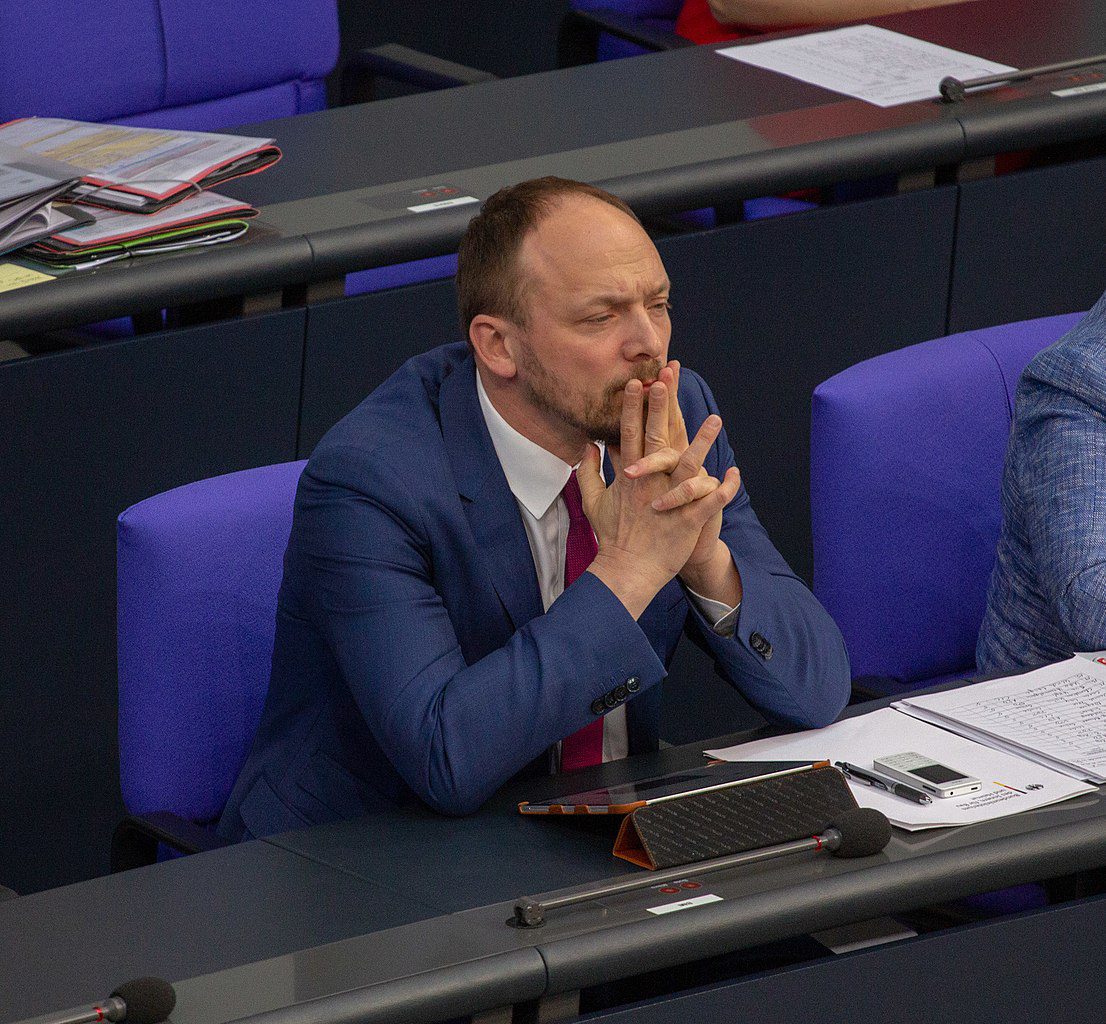
MP Marco Wanderwitz (CDU)
Photo by Olaf Kosinsky is licensed under CC BY-SA 3.0
CDU MP Marco Wanderwitz, who for months has been working to amass support for draft legislation that seeks to ban the Alternative für Deutschland (AfD) party, has refused to say how many MPs support his anti-democratic initiative, leaving some to believe he’s failed to collect the small number of signatures required to bring the motion before the Bundestag.
When asked by the daily newspaper Die Tageszeitung how many MPs he’s managed to persuade to sign on to the plan, Wanderwitz declined to provide details on specific individuals who have endorsed the plan or the total number of supporters he already has.
Wanderwitz, the former Eastern Commissioner under Merkel’s federal government, had previously expressed his desire to bring the draft legislation before the Bundestag—which requires the support of a mere 36 MPs (5%)—by the end of this year.
Now, quite possibly lacking the backing he needs, Wanderwitz has pushed the date back. He claims he’s waiting for the ruling from the Higher Administrative Court (OVG) in Münster on the classification of the AfD by the Office for the Protection of the Constitution (BfV) before he submits the ban request. That ruling is expected to come from the court in late February.
“I have a lot of good conversations and receive a lot of encouragement,” Wanderwitz told the newspaper. “I’m optimistic. The current status is that we will wait for the decision of the Higher Administrative Court in Münster.”
On February 27th, the OVG is set to rule on a lawsuit brought forward by the AfD against the Office for the Protection of the Constitution concerning classifications of the party and its youth organization, Junge Alternative, as suspected cases of right-wing extremism. The CDU MP, who was defeated in a local election by an AfD politician, is hoping OVG judges will confirm the classification, which could breathe new life into his initiative.
Previously, Friedrich Merz, chairman of the CDU/CSU parliamentary group in the Bundestag, spoke out against a ban on the AfD, saying that “party bans have never led to solving a political problem.”
The CDU’s social wing, the Christian Democratic Workers’ Association (CDA), has also distanced itself from Wanderwitz’s proposal.
Sahra Wagenknecht, one of Germany’s leading left-wing politicians, has sharply criticized a potential ban on the AfD as well. “I think the call for a ban on the AfD is completely wrong, and I find the discussion about it dangerous,” she said. “Banning unpopular parties because they become too strong is incompatible with a free society,” she continued, adding that she found “fighting a political competitor with unconstitutional ban proposals incompatible with democratic aspirations.”
The AfD has been the second-largest party in Germany since July, trailing behind the CDU by several points. According to the latest polling figures, the party sits at 22% at the federal level.
